Steps to identify vaccination eligibility
- Understand the tiered system for vaccine distribution
- Communicate with patients
- Use automated forms
- Systematize vaccine screening & appointment booking
- Use a HIPAA-friendly solution for COVID-19 vaccines
People of all ages are anxiously waiting their turn to get one of the COVID-19 vaccines. Because of limited availability, the rollout of the vaccine is phased to prioritize injections for the highest risk groups. Vaccination eligibility requirements determine when each person can sign up for an appointment.
The national government in each country oversees vaccine distribution. For example, in the United States, guidelines and recommendations originate from the Centers for Disease Control and Prevention. The CDC provides information and directions to each state, and local pharmacies, public health agencies, primary care providers, and healthcare clinics then coordinate vaccine administration.
As your vaccine distribution service rolls out, how are you identifying the vaccination eligibility for all of the appointment requests your facility is getting? Not only do you need to be sure you reserve current doses for eligible patient groups, but it’s also necessary to ensure you schedule the optimal number of appointments to use all doses before they expire.
Understand the tiered system for vaccine distribution
The first step in determining vaccination eligibility is to have clear guidelines. Who can receive the vaccine right now?
States have tiered systems, starting with the highest priority groups — such as people over the age of 65, residents in long-term care facilities, healthcare workers, and other frontline workers. The current distribution depends on your location and the number of doses available. Each phase includes people of different age groups and/or medical backgrounds.
This tiered system aims to prioritize doses for the people who have the highest risk of complications from COVID-19. As more vaccine doses become available, the vaccination program will expand to include people in less vulnerable categories.
Communicate with patients
A key component to the successful rollout of a local vaccination program is ensuring that patients know when they can book appointments. When someone meets the eligibility requirements, they need to have access to local facilities to receive available doses.
Not only should your pharmacy or healthcare clinic communicate the current availability to those who are eligible, but you must also share information about upcoming availability for other patients. Providing current information will ensure that each person is ready to schedule a vaccine appointment when it’s their turn.
Your communication efforts should focus on current distribution guidelines, upcoming eligible groups, and other status updates to inform people about the latest news in an ever-changing pandemic.
Use automated forms to determine vaccination eligibility
Thousands of people in your local area are looking for information about vaccine eligibility, making it challenging to handle every inquiry through a one-on-one conversation. An effective alternative is to provide a digital form where people can fill in their information to determine whether they are eligible.
Enter the COVID-19 vaccination eligibility form. Each person fills out the form, and then the system calculates their eligibility status.
Jotform offers streamlined digital tools to simplify this process. For example, some counties are creating COVID-19 vaccination eligibility certification forms to prescreen patients who express interest in the vaccine.
Systematize vaccine screening and appointment booking
You can create a personalized vaccination eligibility form to gather information from interested patients. When a person completes the form, the system moves the patient to the next step based on eligibility. The form is useful for both the patient and your organization. It helps with
- Booking an appointment. If a patient meets eligibility requirements, they will receive a link to schedule a vaccination appointment.
- Planning for future phases. When someone is not yet eligible, their information remains on file. This supports the clinic in alerting interested patients when new phases start.
This multistep process helps you collect relevant information from patients. Additionally, digital forms and tables are helpful for appointment booking and schedule coordination.
Use a HIPAA-friendly solution for COVID-19 vaccines
When you’re collecting protected healthcare information (PHI), it’s critical that you have private, secure systems at all times. HIPAA requirements are easier to follow if you’re using HIPAA-friendly tools. Jotform is HIPAA-friendly, making it an excellent option for covered entities.
Jotform offers a variety of templates and customizable forms that can help you create a vaccination schedule, conduct screening, and keep your administrative system running smoothly. Here are just a few useful templates:
- COVID-19 vaccine consent form
- Pre-vaccine checklist for COVID-19 vaccines
- COVID-19 vaccine appointment form
- COVID-19 vaccine preregistration form
Jotform offers more than 300 coronavirus response forms to help healthcare organizations and government agencies collect the information they need. These templates are easy to use and provide customization features to accommodate your unique data-collection requirements. Also, you can sort and analyze form submissions through Jotform Tables to see an overview of the data.

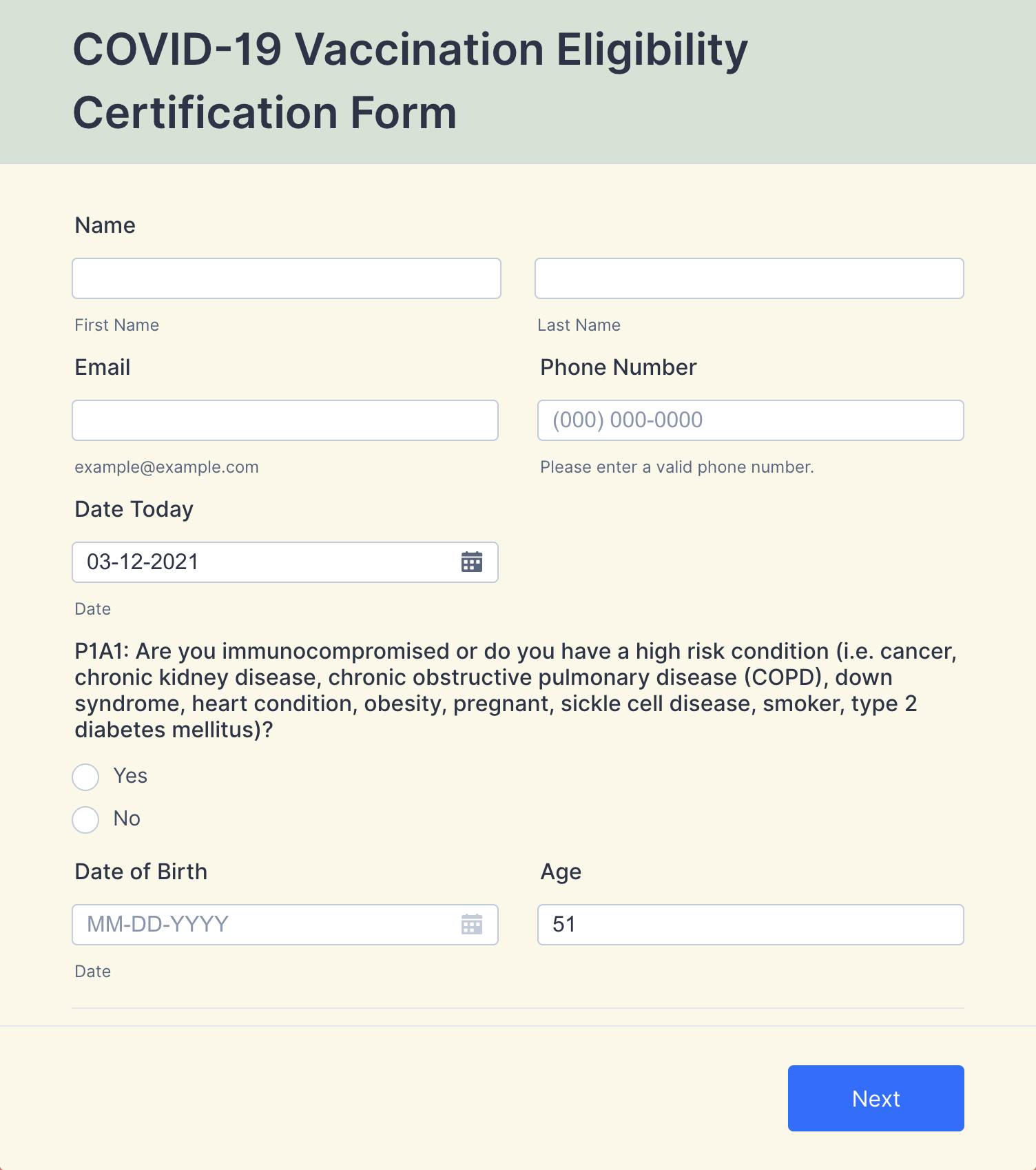
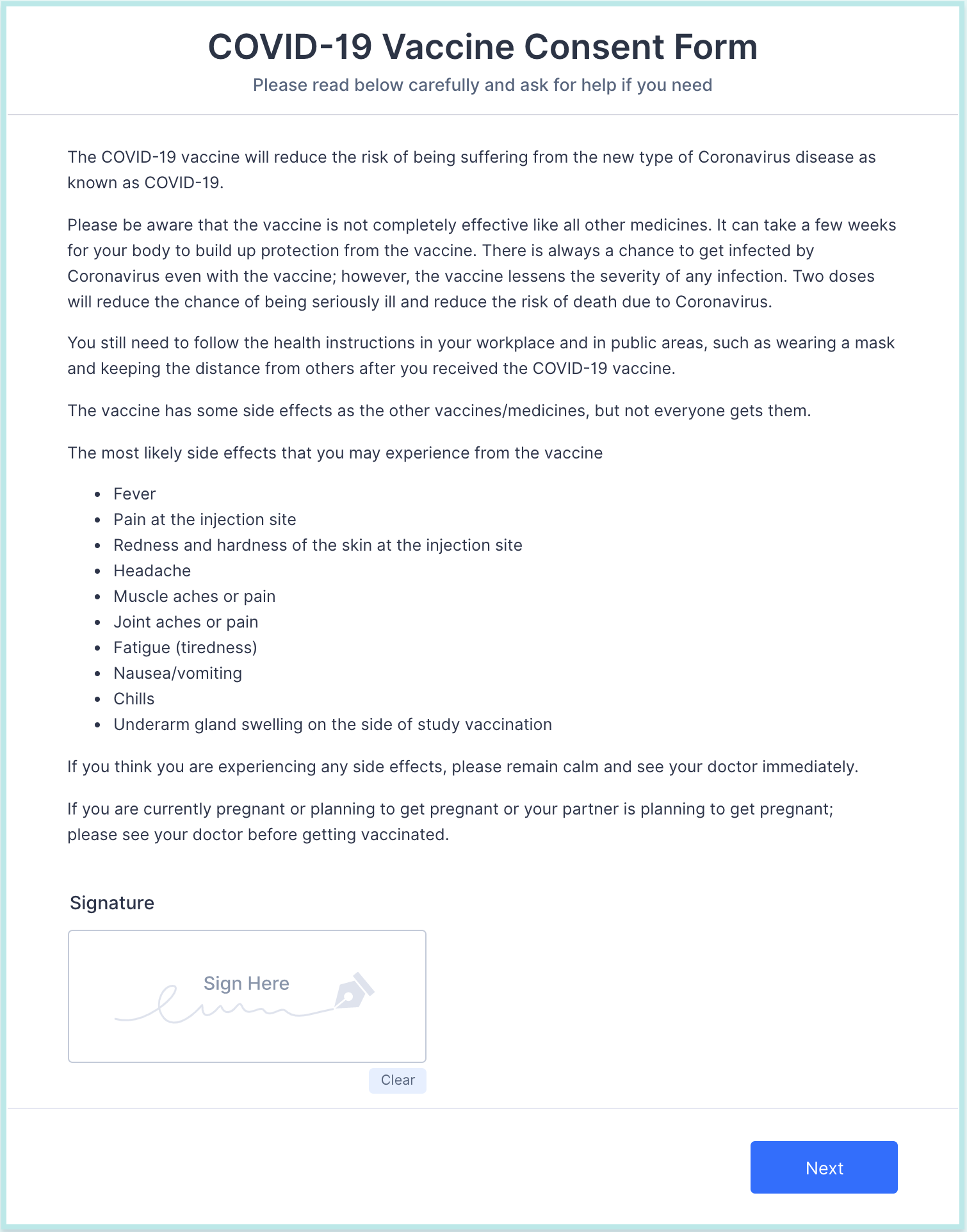
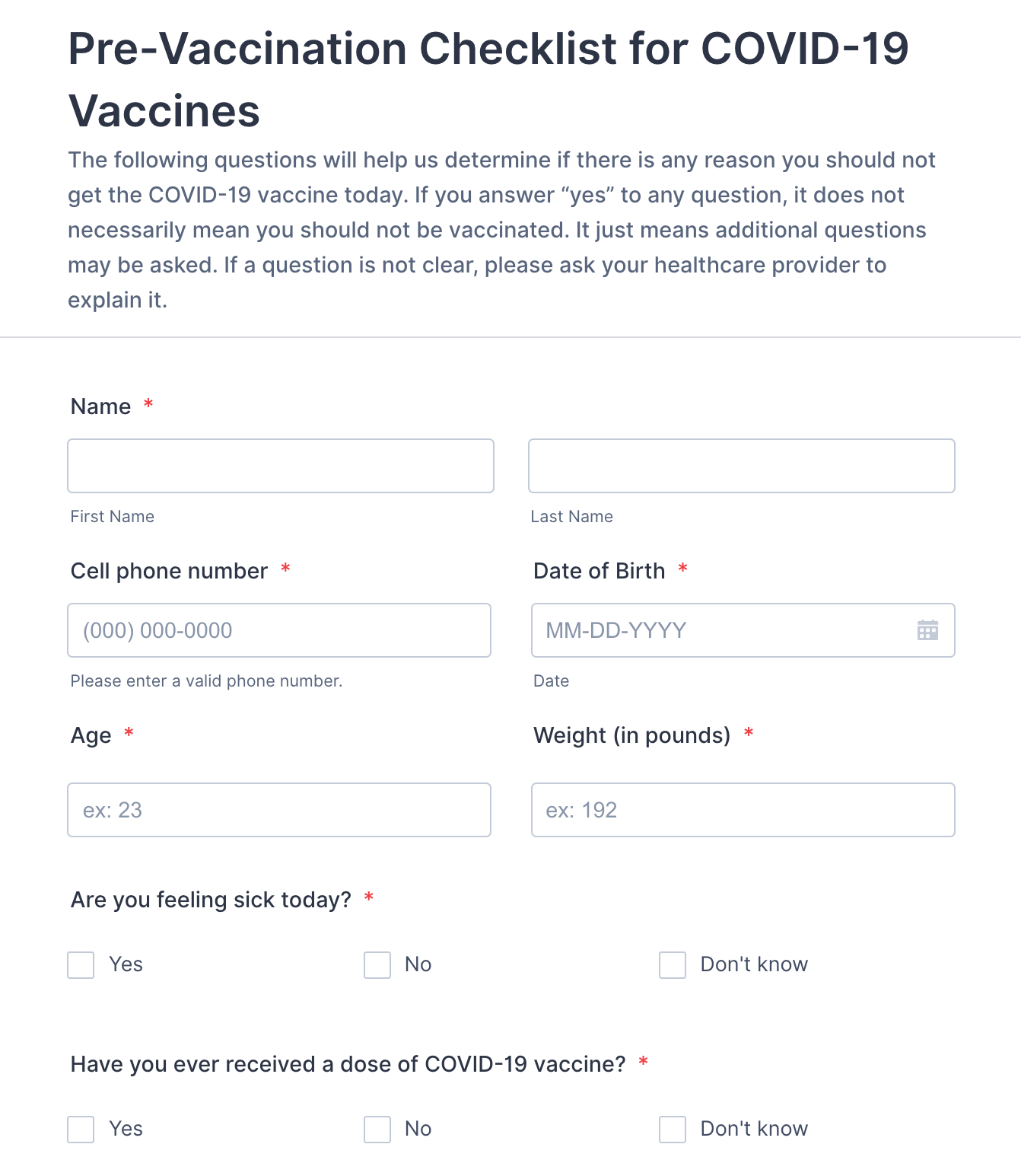
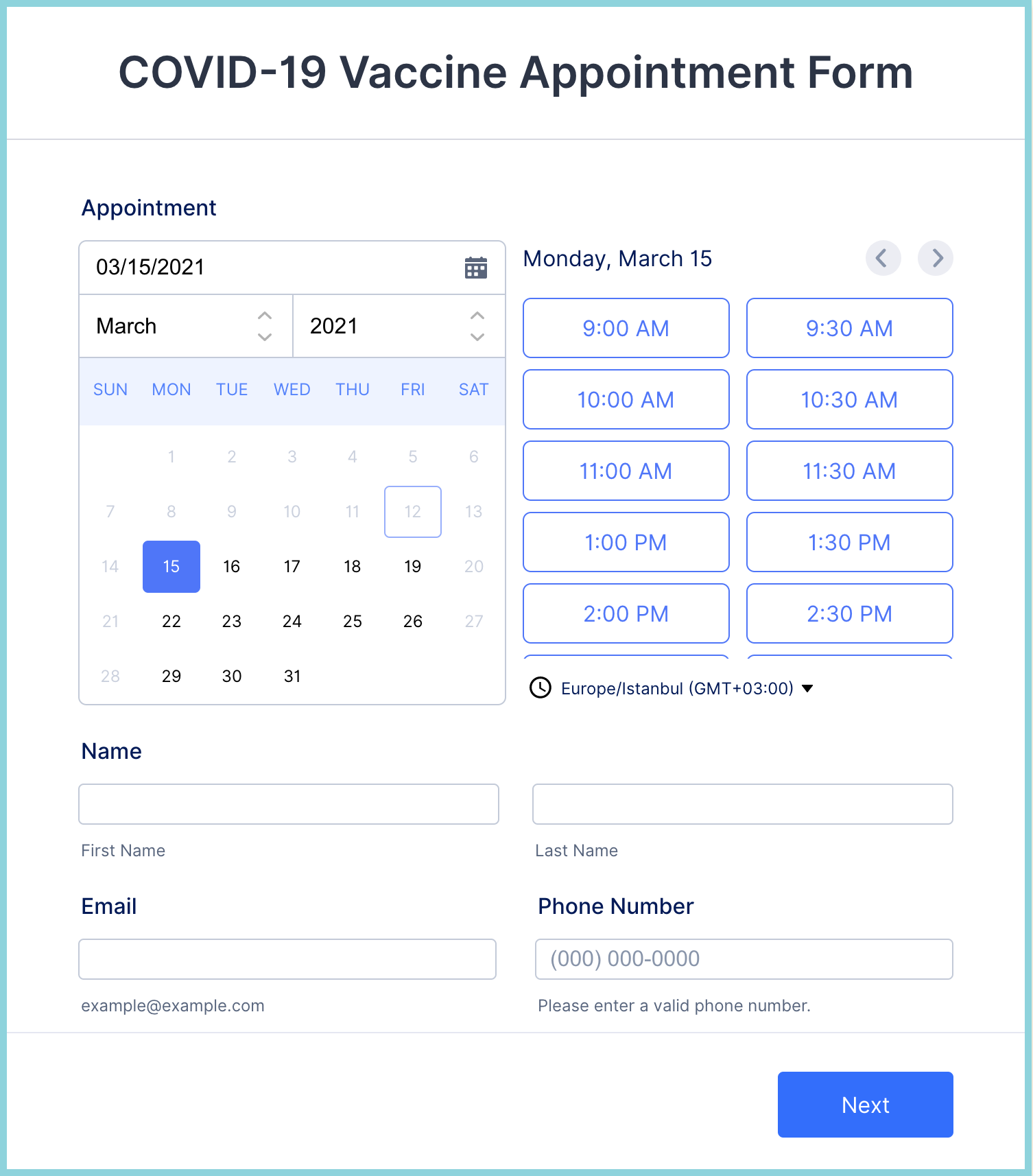
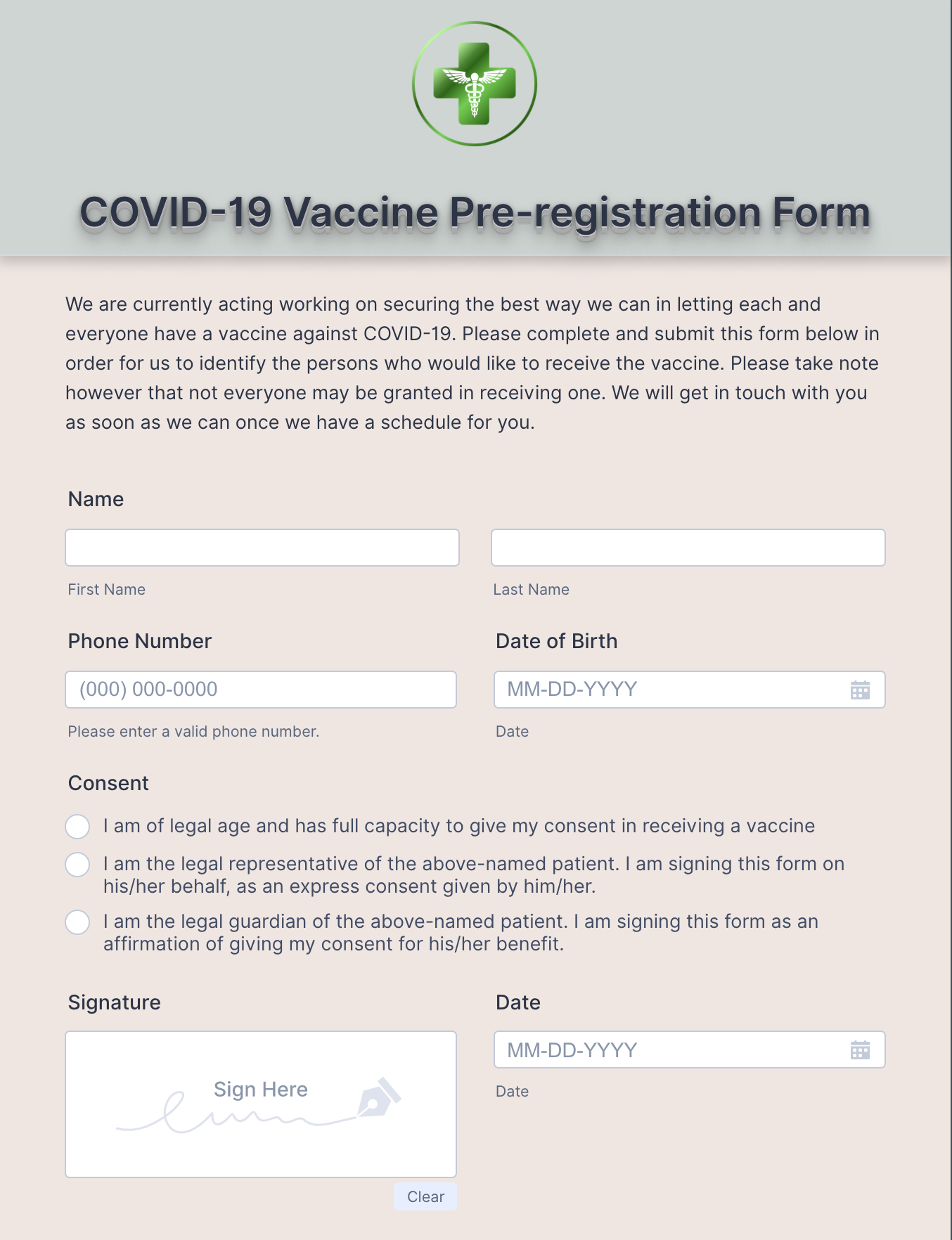






































































































Send Comment: